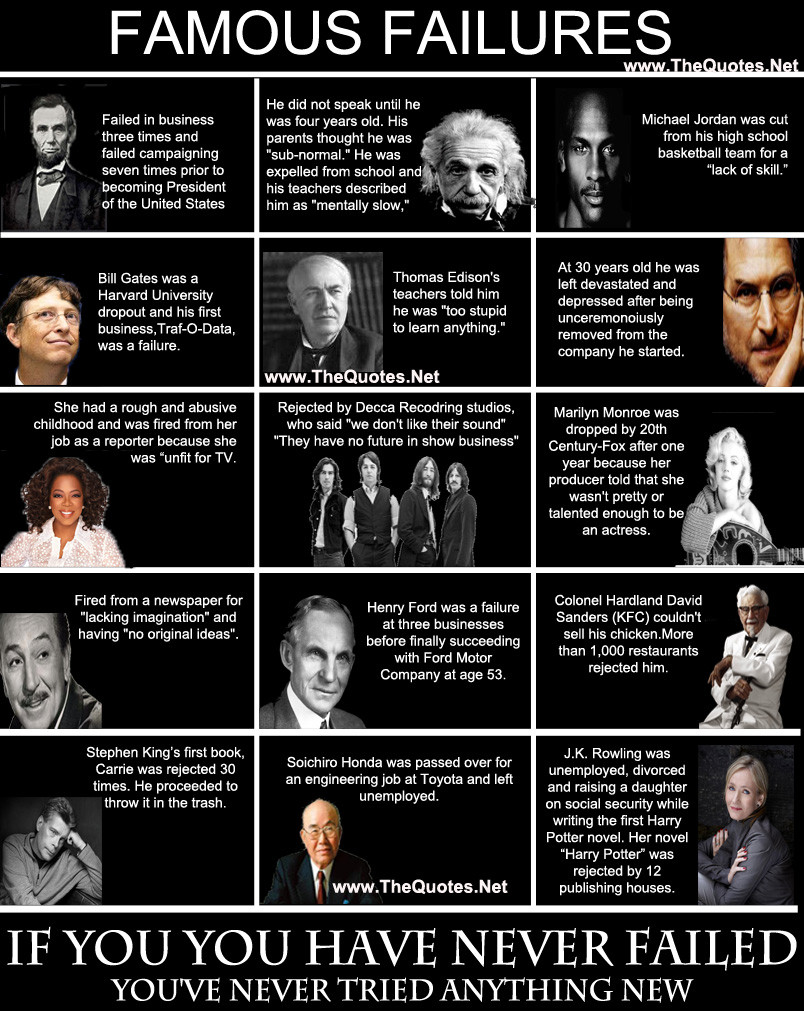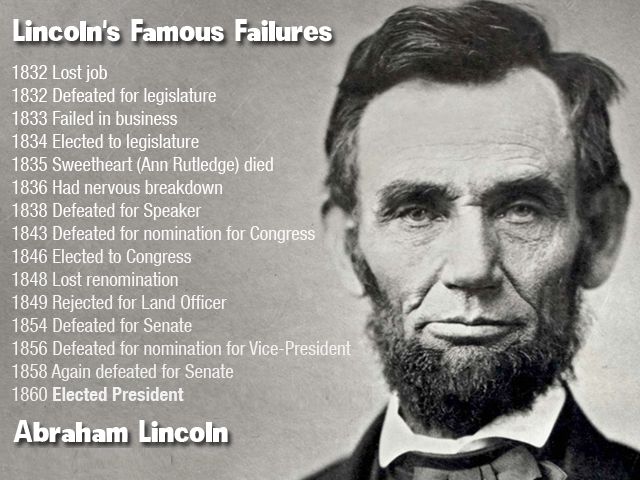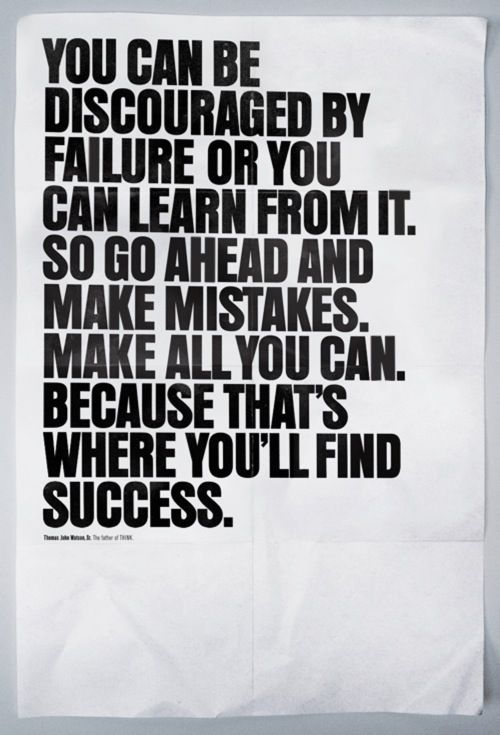
I know, this is a strange title for a blog, especially when we are only a matter of weeks away from opening the College but it is a concept that I believe is hugely underestimated and misunderstood. All too often it is seen as something bad and to be avoided. It would be far more healthy to see fails as normal and part of the learning process.
In most educational contexts the concept of failure is seen in a very negative light. In fact as educators we have often tried to effectively minimise the chance of our learners experiencing failure. We teach them to pass tests and assessments and success tends to be primarily measured in how often they succeed and how rarely they fail. There are times when we encourage a form of rote learning to ensure that our students produce the right answers without questioning the process and repeat these learnt responses in test conditions with little real understanding of the complexity surrounding the material they are being assessed on. Fails have come to be seen as somehow damaging for young people when in reality they are an inevitable result of trying new things, trying to gain new mastery and developing as a person.
Success is important. there is no doubt it is what we all aim for. It is the preferred end result of all effort and endeavour but I would argue that meaningful success only really comes out of the experience of failure. It is only through experimenting, innovating, trying then failing and then trying again that genuine understanding and innovation can occur.
The list of famous failures below would seem to provide ample evidence that trial and error is the basis for greatness.

To go into further detail we need look no further than the case Abraham Lincoln below, probably one of the most comprehensive failures in history,but these fails didn’t define him, they didn’t defeat him he gained knowledge, experience resilience and strength from them and chose to rise above adversity. A true case of being knocked down seven times and standing up eight times, the definition of success.Surely if we want our young people to develop similar levels of determination and self belief then we have to teach them that failure is not the end result but a part of the journey towards success.

Which brings me to possibly the most important aspect of failure, it remains failure unless lessons are learnt from it. Fails that are repeated without lessons learnt and knowledge gained remain failures, they can only become success when lessons are learnt and experiences reflected on.
If fails are seen as the necessary part of trying new things. of innovating and growing then they can be seen as inevitable and even a good thing, in the very least they can be normalised as unavoidable and character building.
In light of this it will come as no surprise that we have introduced a Fail Wall in our temporary space at West Rolleston. It has three parts to it. The first is titled ‘What was I thinking’ and it is a place to admit that we all make basic errors, it is called being human. The second is a Fail section and the third is a place to reflect on lessons learnt from these fails. In this way we can hopefully normalise the making of mistakes and accept fails as a normal part of life and growth.
I would love to get to a stage where we as a school did a similar thing, we celebrated failure and normalised the process of making mistakes as a normal part of growth, Goodness knows teenagers are bound to make their fair share of mistakes as they grow and develop.
I would question whether any meaningful growth can occur without experiencing a high error rate but the sense of satisfaction that comes from overcoming obstacles, learning from our mistakes and succeeding in something that we initially found frustrating and difficult is something I would like all of our students to experience.
